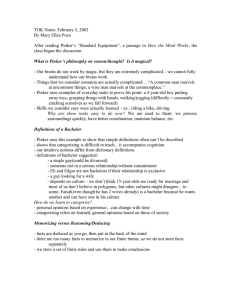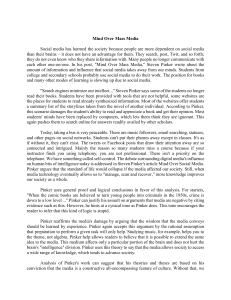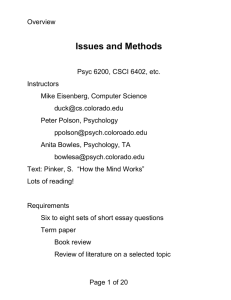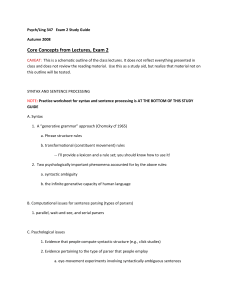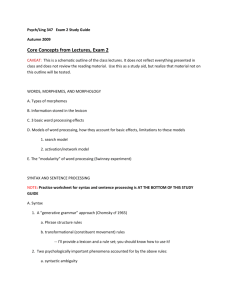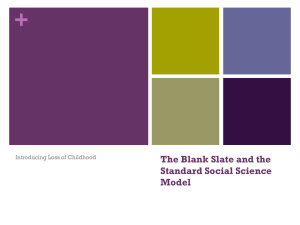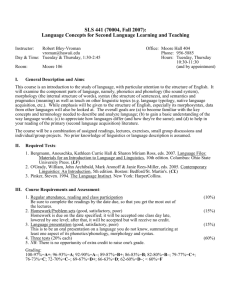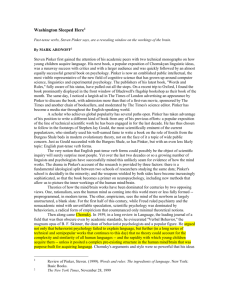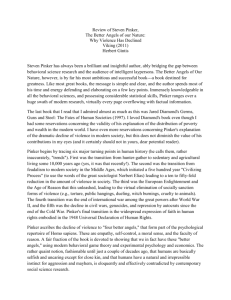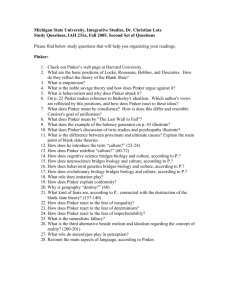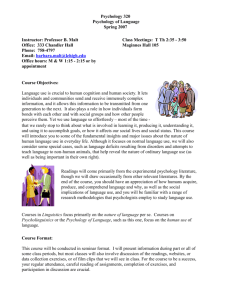HUEN 1010 Dr. Fredricksmeyer Discussing “The Fear of
advertisement
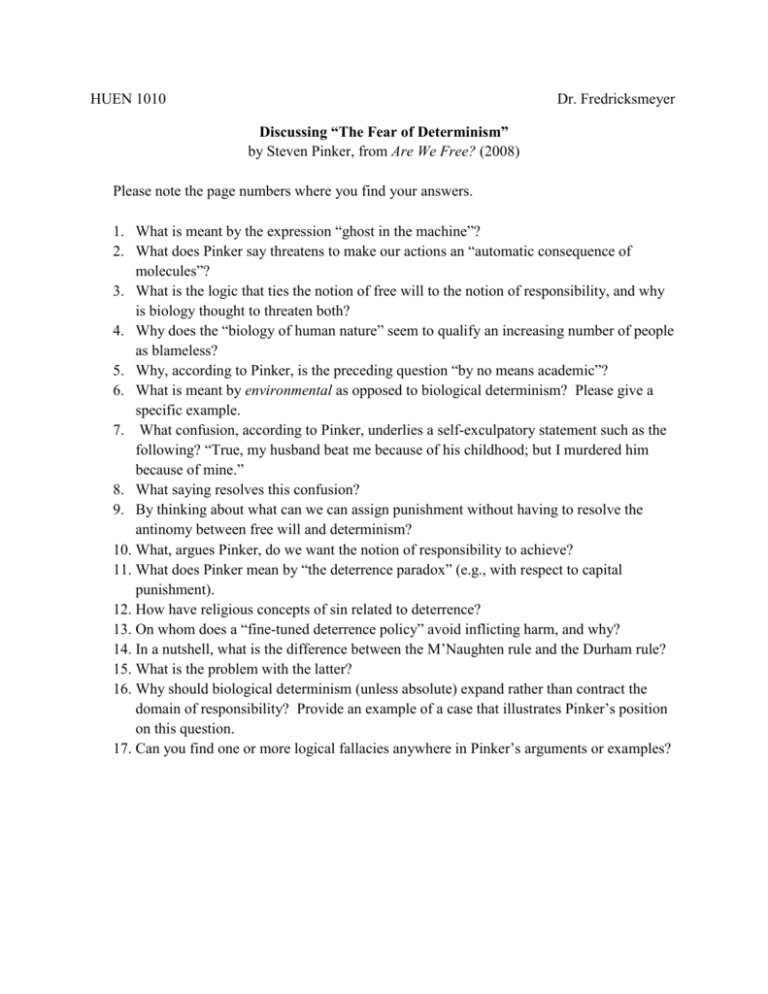
HUEN 1010 Dr. Fredricksmeyer Discussing “The Fear of Determinism” by Steven Pinker, from Are We Free? (2008) Please note the page numbers where you find your answers. 1. What is meant by the expression “ghost in the machine”? 2. What does Pinker say threatens to make our actions an “automatic consequence of molecules”? 3. What is the logic that ties the notion of free will to the notion of responsibility, and why is biology thought to threaten both? 4. Why does the “biology of human nature” seem to qualify an increasing number of people as blameless? 5. Why, according to Pinker, is the preceding question “by no means academic”? 6. What is meant by environmental as opposed to biological determinism? Please give a specific example. 7. What confusion, according to Pinker, underlies a self-exculpatory statement such as the following? “True, my husband beat me because of his childhood; but I murdered him because of mine.” 8. What saying resolves this confusion? 9. By thinking about what can we can assign punishment without having to resolve the antinomy between free will and determinism? 10. What, argues Pinker, do we want the notion of responsibility to achieve? 11. What does Pinker mean by “the deterrence paradox” (e.g., with respect to capital punishment). 12. How have religious concepts of sin related to deterrence? 13. On whom does a “fine-tuned deterrence policy” avoid inflicting harm, and why? 14. In a nutshell, what is the difference between the M’Naughten rule and the Durham rule? 15. What is the problem with the latter? 16. Why should biological determinism (unless absolute) expand rather than contract the domain of responsibility? Provide an example of a case that illustrates Pinker’s position on this question. 17. Can you find one or more logical fallacies anywhere in Pinker’s arguments or examples?
